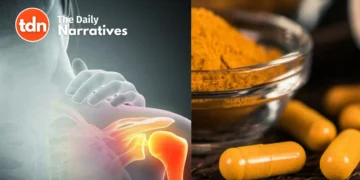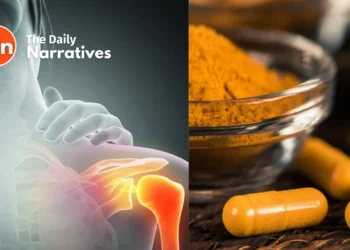Table of Contents
Based on the findings of the Stress, in America survey conducted by the American Psychological Association it was revealed that 45% of the surveyed individuals in the United States mentioned that everyday stress factors such as concerns and work responsibilities affect their sleep patterns. The respondents highlighted experiencing stress indicators like anxiety, irritability and fatigue.
Health specialists from the National Institute of Mental Health have cautioned about the effects of prolonged stress on health including risks such as cardiovascular diseases, diabetes, hypertension and depression.
To naturally address stress levels, beneficial practices like yoga and meditation are recommended. Some individuals find solace in connecting with loved ones or engaging in activities to stimulate endorphin release. Alongside lifestyle modifications for relaxation and well being enhancement, dietary adjustments and supplements can also contribute significantly to alleviating stress.
Here’s an overview of a supplements recognized for their stress relieving properties;
Theanine
Studies have demonstrated that theanine, an amino acid, in green tea leaves enhances alpha wave activity in the brain leading to a state of relaxation without inducing drowsiness.
A research study published in the Journal of Physiological Anthropology showed that theanine effectively reduced anxiety symptoms and lowered blood pressure among adults facing levels of stress.
This natural stress reliever is said to start working within 30 minutes. It is advised by experts to take doses ranging from 50, to 200 milligrams as the effectiveness can vary depending on the individual.
Herbal Solutions
-
Ashwagandha
Ashwagandha is widely recognized for its stress and anxiety reducing properties in medicine with clinical studies supporting its efficacy. A study in the Indian Journal of Psychological Medicine revealed that a dosage of 300 milligrams of ashwagandha root extract taken twice enhanced stress resistance. -
Echinacea angustifolia
Extracts from Echinacea angustifolia, a type of echinacea plant have been found to possess stress reducing qualities based on studies like the one published in Phytotherapy Research, which demonstrated its ability to alleviate anxiety – a symptom of stress. -
Ocimum sanctum
Commonly referred to as basil this adaptogenic herb is renowned for alleviating stress symptoms and promoting adrenal gland health.
The experts at the University of Maryland Medical Centers Complementary and Alternative Medicine Guide recommend an intake of 400 milligrams of holy basil, for managing stress symptoms. If you are taking blood thinning medication it’s advisable to consult your doctor before incorporating basil into your routine.
B-complex vitamins
B complex vitamins play a role, in supporting a nervous system by working together. Vitamin B6, also known as pyridoxine is essential for energy production and the synthesis of neurotransmitters for brain function.
Research suggests that higher levels of vitamin B6 can contribute to mood due to its impact on neurotransmitters like serotonin. Folate or folic acid is another B vitamin associated with mood regulation.
Low folate levels are often linked to feelings of depression and irritability leading to increased stress levels.
A quality B complex supplement should include all the water soluble B vitamins required for a brain and mental well being including at least 400 micrograms of folate and 50 milligrams of B6.
Magnesium
When it comes to magnesium intake a survey, from Gallup revealed that 72 percent of adults fall short of the Recommended Dietary Allowance. Not meeting magnesium requirements can lead to decreased levels potentially contributing to feelings of mood. Conversely higher magnesium levels have been connected with enhanced relaxation and reduced stress symptoms.
The National Institutes of Health suggest that adult men should aim for a magnesium intake, between 400 to 420 milligrams while adult women should target a range of 310 to 320 milligrams.
Probiotics
Regarding probiotics recent studies indicate that besides improving gut health a daily probiotic can boost the system reduce inflammation in the body and even influence our mood positively.
A review and meta analysis of trials examining the effects of probiotics on depression featured in a 2016 edition of Nutrients journal presented evidence suggesting that taking probiotics may help lower the risk of depression and alleviate associated symptoms like anxiety and irritability.
Another research study conducted at the University of Missouri revealed that the common probiotic strain Lactobacillus plantarum could potentially reduce stress related behaviors and anxiety.
Although this particular study did not involve humans directly it aligns with existing research indicating connections between a gut and a healthy central nervous system.
Experts recommend consuming a probiotic containing between 1 billion to 15 billion CFUs to maintain gut health.
Aromas
On the topic of aromas certain scents possess impacts, on both our state and physical well being. Aromatherapy utilizes oils fragrances to promote healing effects and enhance wellness.
Lavender essential oil is popular, for its calming effects when inhaled or used during a massage. A research paper from the Journal of the Medical Association of Thailand revealed that individuals who breathed in oil experienced blood pressure and heart rate indicating a state of relaxation. Similarly a study, in Phytotherapy Research demonstrated that the sweet floral aroma of ylang ylang oil can also help relax the system by reducing heart rate and blood pressure.
Here are our Best Stress-Relief recommended Supplements.
Please note that product descriptions on our website are sourced from Amazon to ensure accuracy and comprehensiveness. We also used affiliate links for these products from which we may earn a small commission at no extra cost to you if you make a purchase through these links.


















































